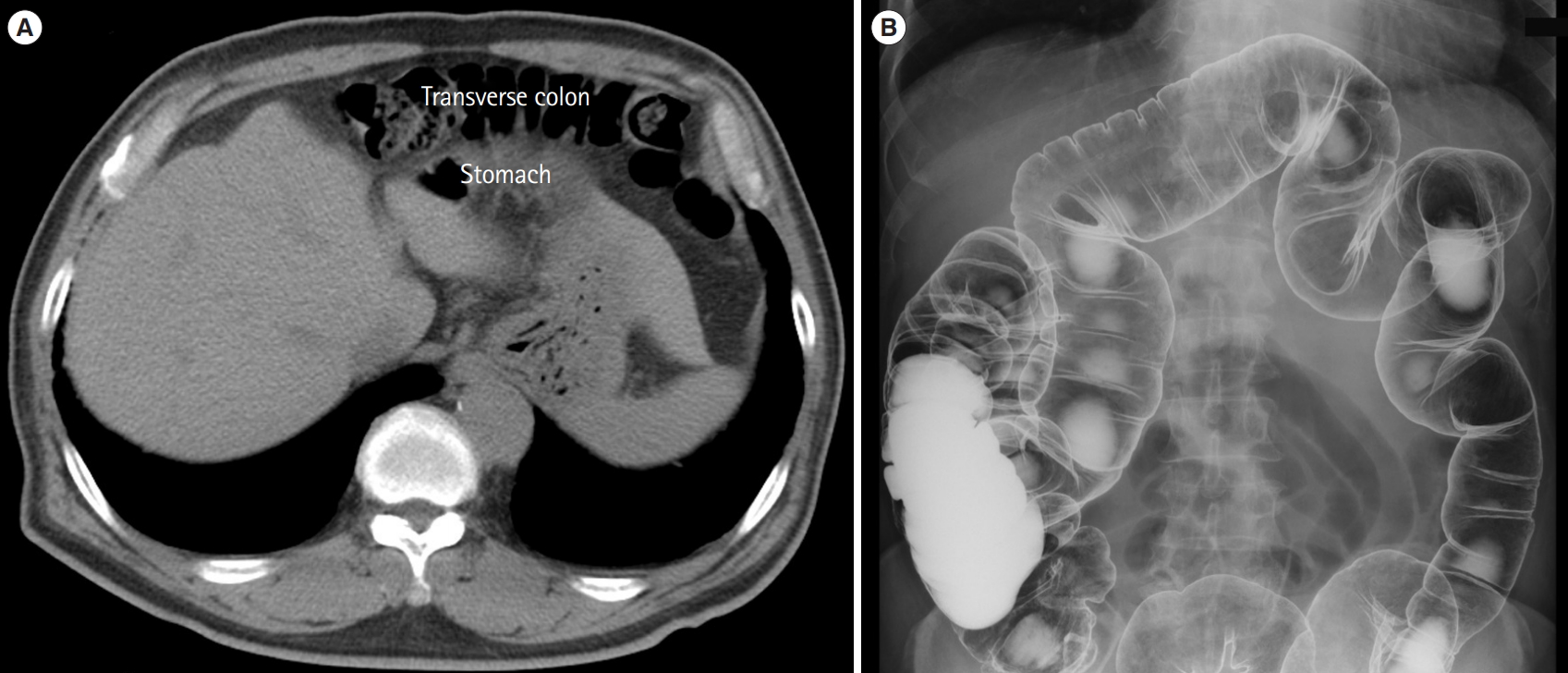 |
 |
- Search
| Intest Res > Volume 19(2); 2021 > Article |
|
Question: A 66-year-old man, who had been referred from a clinic, complained sleep disturbance due to epigastric bloating and discomfort in supine position for 5 years. He had regular defecation and no complaints in upright position at daytime. He had visited several clinics and underwent repeated esophagogastroduodenoscopy, colonoscopy, and cardiac examinations, which had revealed normal findings. Medications including antiacids, antispasmodics, prokinetics, and antidepressants had not been effective. Physical examination revealed tympanic percussion with mild tenderness on the epigastrium. Laboratory tests were not remarkable. Plain abdominal computed tomography (CT) scan was shown (Fig. A). Written informed consent was obtained. What is the most likely diagnosis?
CT scan showed the interposition of the transverse colon between the stomach and the abdominal wall (Fig. A). Obstructing masses were not detected. Barium enema in supine position confirmed that the splenic flexure along with the left side of the transverse colon existed firmly in the epigastrium (Fig. B). Splenic flexure syndrome was diagnosed. The reassurances of the absence of serious disorders and the advice to take decubitus position for sleep have made him comfortable.
The splenic flexure, the highest-reaching segment of the colon, may become distended as the gas rises to fill it. Splenic flexure syndrome is a disorder characterized by symptoms including bloating, fullness, and left upper abdominal pain, which are caused by the distended splenic flexure [1,2]. This syndrome has been recognized as a type of irritable bowel syndrome [3]. The amount of gas in the transverse colon seems to be related with functional bloating [4]. Treatment is directed to the reassurance of the patients of the absence of serious organic diseases [3]. Psychotherapeutic measures may be helpful in the individual case. Antispasmodics, adsorptives, sedatives, and antidepressants have yielded somewhat varied but generally disappointing results [2,3]. Biofeedback treatment can be effective in certain cases with dyssynergic defecation. Although it is not a life-threatening disease, quality of patients’ lives is often affected because of the lack of specific treatments. In conclusion, although this is a classic syndrome, it is sometimes underdiagnosed and thus distinguishing this syndrome from cardiac and other gastrointestinal disorders is important for clinicians. This case emphasized the importance of recognition of this syndrome for gastroenterologists to reduce the unnecessary repeated examinations.









